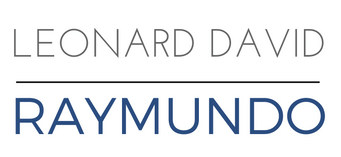The art of writing, regardless of setting, can be seen as a means of expressing yourself, manifesting your emotions on a piece of paper or computer screen, or just simply communicating with another. However, for those who possess less than average writing skills, achieving any of those can be unnecessarily difficult. Improving this can be tricky if you don’t know where to start. Which is why I’ve included a number of strategies you can use to enhance your writing abilities on all platforms, that I’ve found to be successful.
Write with your hands
Almost everyone today would consider the terms ‘writing’ and ‘typing’ synonymous. Given the various forms of technology at our fingertips, that is true to some extent. If your daily writing activities are via a keyboard 100% of the time and you are failing to see any improvement, give handwritten pieces a try. Practicing your handwriting has been linked to improved cognitive ability, and can allow you to look at the written piece from a different perspective. It can keep your mind active, and promote thoughtfulness within you that not have been able to tap into prior. For myself-I have found that writing by hand, while more “difficult”, produces more creative and thoughtful work.
Recognize your mistakes
Make note of the most common errors you yourself make when writing. Do you struggle with spelling, grammar, or overused expressions? Pay attention to what you tend to write most. This can provide insight into any mistakes you are making on a consistent basis. When typing, the technological phenom that is autocorrect is another great tool to help point out your mistakes.
But the best thing you can do is simply read your writing out loud. Does it sound disjointed? Awkward? Doesn’t make sense? If any of these things are true, you’ll want to rewrite it until it sounds natural when read aloud.
Utilize resources
There are countless websites online that are greatly beneficial to writers. Whether you need a thesaurus to expand your vocabulary, or a tool to help you figure out which words in your title should be capitalized, the internet has it all. In addition to helping you improve your writing, you are likely to learn new words or phrases that you can then incorporate, breaking up your style even more.
Organize ideas beforehand
If your writing tends to be scattered and unorganized, writing down your thoughts before you start working on the actual piece can help tremendously. Create a chronological storyboard that lays out every part of your intended piece, adding specific details in bullets underneath. This isn’t to say that spontaneous writing is bad, rather organizing your thoughts can be helpful, and easier for those that wish to improve their basic writing skills.
Learn from others
All the greats in writing learned from someone. Developing your writing skills takes time, and making note of what accomplished writers put together can help. Read the works of famous authors, or even a friend or family member who you know possesses great writing skills. This can enhance your vocabulary, your grammar, and even spark ideas for future pieces.
My personal favorite is Stephen King, and his book: “On Writing”, which has been an inspiration to my writing career. I can’t recommend it highly enough.




